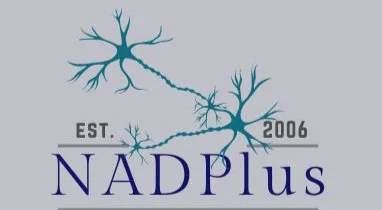Unlocking Metabolic Health: The Role of NAD+ IV Therapy
Metabolic health plays a crucial role in our overall well-being. It encompasses various biochemical processes that regulate how our bodies utilize energy, including glucose and lipid metabolism. One emerging therapy that has gained significant attention in the realm of metabolic health is NAD+ IV therapy. The role of NAD+ therapy can be instrumental in regulating metabolic pathways, specifically those related to glucose and lipid metabolism, and optimizing NAD+ levels may potentially support weight management.
The Metabolic Orchestra
Metabolism is like a well-coordinated orchestra, with each player (metabolic pathway) performing its unique role to maintain energy balance. NAD+ (nicotinamide adenine dinucleotide) is a coenzyme that acts as a conductor in this intricate symphony of metabolic processes. It is a vital molecule found in all living cells and serves as a key player in various biochemical reactions.
NAD+ and Glucose Metabolism
One of the most critical metabolic pathways regulated by NAD+ is glucose metabolism. NAD+ is a crucial cofactor in glycolysis, the first stage of glucose metabolism. In glycolysis, glucose is broken down into pyruvate, releasing energy that our cells can use. This process is essential for maintaining stable blood glucose levels and providing energy for various bodily functions.
Research indicates that NAD+ levels decline with age, which may contribute to impaired glucose metabolism and insulin resistance. NAD+ IV therapy, which involves intravenous administration of NAD+, has shown promise in improving insulin sensitivity and glucose tolerance. A study published in the journal Cell Metabolism demonstrated that boosting NAD+ levels can enhance the activity of sirtuins, a group of proteins involved in regulating glucose metabolism, potentially aiding in diabetes management.
NAD+ and Lipid Metabolism
In addition to glucose metabolism, NAD+ also plays a crucial role in lipid metabolism. Lipids, including fats and cholesterol, are essential for energy storage and cellular function. Dysregulation of lipid metabolism can lead to obesity and cardiovascular diseases.
NAD+ is involved in regulating the activity of enzymes responsible for breaking down fatty acids and cholesterol. By maintaining NAD+ levels, we can support the efficient breakdown of fats, potentially preventing their accumulation and the development of metabolic disorders.
Weight Management and NAD+ Therapy
Optimizing NAD+ levels through therapies like NAD+ IV infusion may hold promise for individuals seeking to manage their weight. NAD+ therapy has been linked to increased energy production and improved metabolic efficiency, both of which can contribute to weight loss and weight maintenance.
Furthermore, NAD+ therapy may aid in reducing cravings for unhealthy foods by supporting the regulation of appetite-related hormones. Studies have shown that NAD+ can influence the production of molecules like leptin and ghrelin, which play pivotal roles in hunger and satiety.
Metabolic health is a cornerstone of overall well-being, and maintaining optimal NAD+ levels is essential for its regulation. NAD+ therapy has emerged as a potential tool in promoting metabolic health, particularly in glucose and lipid metabolism. By enhancing insulin sensitivity, supporting efficient glucose utilization, and aiding in the breakdown of fats, NAD+ therapy offers exciting possibilities for managing metabolic disorders and supporting weight management.

